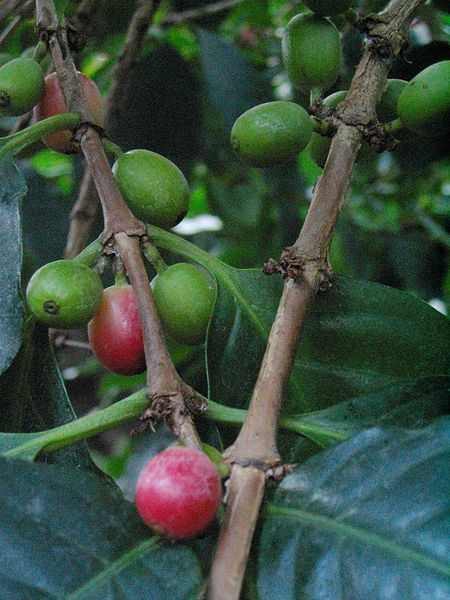
Posts Tagged: coffee
California coffee can be grown amidst avocado trees

The farmer, Jay Ruskey was working with UC Agriculture and Natural Resources advisor Mark Gaskell when they had a "eureka moment," the story said. Coffee bushes can benefit from the environment created by an avocado plantation.
"I went through lots of cycles of plantings looking at options for using unused land," Rusky said. "Interplanting works for a lot of reasons, and coffee fits perfectly with avocados because it has similar nutrition requirements."
Americans' coffee is typically grown in tropical areas of Hawaii, and Central and South America. Gaskell, who worked with coffee growers for Central America for several years prior to joining UC in 1995, approached Ruskey with the idea of growing coffee in 2001.
“My job is to help small farms with problem solving, so I'm always looking for these kinds of synergies,” Gaskell said of the interplanting technique. “Commercial water rates are high, so ‘How are we going to get the most efficient utilization of land and water?' is at the back of every grower's mind.”
Gaskell said it is important to note that coffee also does just fine by itself in open field planting as long as it is irrigated. It doesn't require avocado interplanting for success, but avocado interplanting is an additional opportunity for coffee growing in California.
In 2014, Coffee Review rated Ruskey's coffee - sold under the name Good Land Organics - among the top 30 in the world.
The publication's top ranking of Good Land Organics has made coffee associations elsewhere sit up and take notice of the potential for a high-quality, domestic crop, the Take Part article said.
“All of a sudden I'm thrown into the spotlight of the coffee world because I'm a disruption, which is something it needs, because it does not have a lot of research going on, like with other crops,” Ruskey said.
California grown coffee is a new option for locavores

"Fifteen years ago this would not be feasible because most people were satisfied with Yuban or Folgers types of coffee," Ruskey said. "Now people pay 10 to 20 times more than those old prices for . . . unique cups of coffee that have a wide range of flavors from a variety of cultivation techniques."
Ruskey sells the coffee at the local farmers market.
Californians to get a local cup o' joe
UC Cooperative Extension farm advisor Mark Gaskell is working with a farmer in Santa Barbara County to determine whether coffee can be a viable specialty crop in California, said an article published last week in the Santa Barbara News Press.On the 20-acre organic farm of Goleta resident Jay Rusky, more than a dozen coffee varieties are being cultivated on a trial basis. Rusky first planted coffee in 2000; he now has about 400 trees. Gaskell told the reporter it is likely the most extensive coffee planting in California.
Coffee beans are the seeds of coffee cherries. The coffee tree is native to subtropical Africa and southern Asia. Most coffee is grown in subtropical and equatorial regions of the world.
Rusky's farm is on a south-facing slope at the 650-foot elevation, well below the snow line and above valley floors where frost can settle on winter mornings.
In the article, writer Karna Hughes outlined Gaskell's role in bringing coffee to the property.
"I had done trials with Jay before with lychees and longans," Gaskell was quoted. "On one of the visits, I remarked (the site) reminded me a lot of the coffee growing in the Kona area on the Big Island . . . I said, 'I think you ought to be able to grow coffee here because you're frost-free."
Gaskell, a Peace Corps veteran, provided Rusky with coffee seeds through his contacts in Central America. Now varieties from around the world are being cultivated on the farm - including Geisha coffee, which the article says can go for $150 per pound.
However, growing coffee in California isn't easy.
"It's a very different growing environment from what you see in Hawaii and in Central America in that the soils are more acid there and there are higher rainfalls (there)," Gaskell was quoted.
But the farmer is already meeting with some success. Certified "cuppers" - who test for coffee characteristics like flavor, aroma and body - gave the beans good marks.
"They have come back with a report that the quality of the coffee is extremely good - equal or better than a Kona-type coffee," the story quoted Gaskell.
Plans for expanding plantings and expanding the market for premium, locally grown coffee are now underway.

Each coffee cherry contains two coffee beans